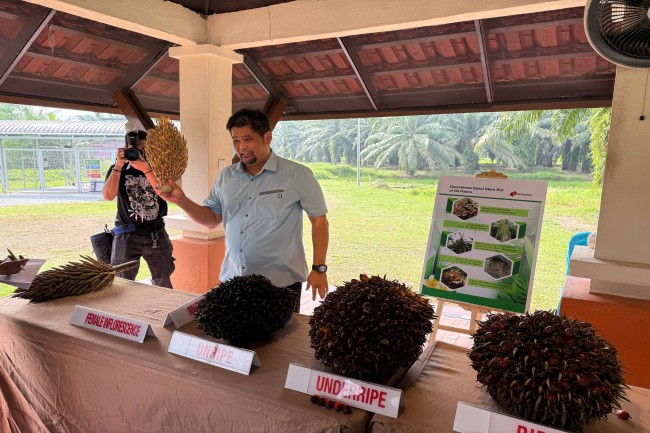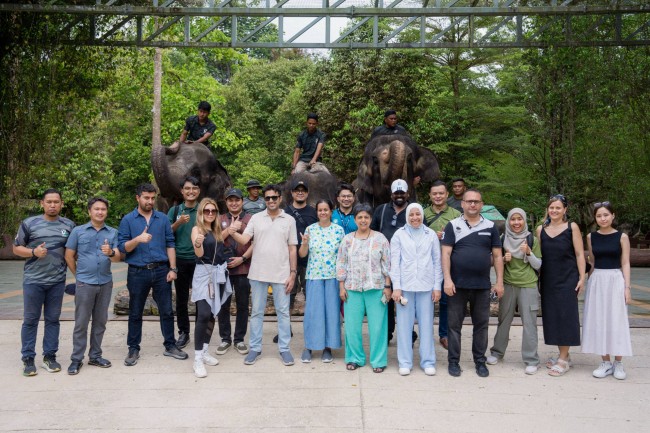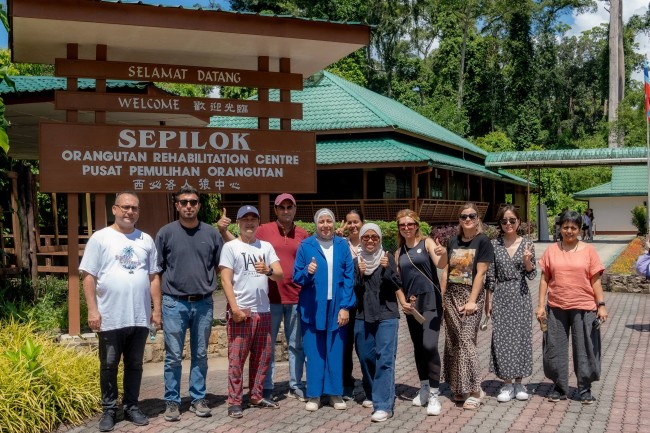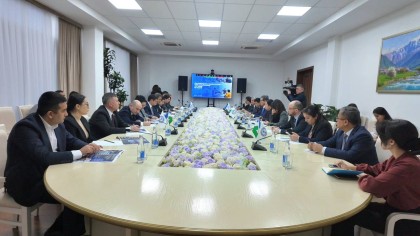From June 15 to 21, 2025, the Malaysian Palm Oil Council (MPOC) organized a unique field visit for ten journalists from Uzbekistan, Kazakhstan, India, Pakistan, Egypt, the Philippines, and Türkiye.
The aim of the program was to provide the international media with a deeper understanding of MPOC’s activities and to dispel common myths surrounding palm oil production.
The Malaysian Palm Oil Council (MPOC) is a leading organization dedicated to promoting sustainable and responsible palm oil production. Malaysia produces approximately 19 million tonnes of palm oil annually, making it the second-largest producer in the world after Indonesia. MPOC is actively working to enhance environmental standards and minimize the ecological impact of palm oil cultivation and processing.
One of MPOC’s core focuses is the protection of biodiversity and wildlife. The organization supports and maintains several major environmental initiatives and national conservation areas, including:
1. Sepilok Orangutan Rehabilitation Centre in Sabah, which rescues and rehabilitates over 100 orangutans each year.
2. Taman Negara National Park, Malaysia’s oldest rainforest reserve, covering approximately 4,343 square kilometers. It plays a critical role in the conservation of the Malayan tiger, of which only around 150–200 individuals remain.
3. Kuala Gandah Elephant Sanctuary, a rescue and rehabilitation center for Asian elephants, where up to 30 elephants are saved and released back into the wild annually.
As part of the program, the journalists visited several major palm oil plantations, including Sime Darby Plantation and FELDA, both certified under international sustainability standards such as RSPO (Roundtable on Sustainable Palm Oil) and MSPO (Malaysian Sustainable Palm Oil). These plantations utilize modern agricultural technologies that reduce water and fertilizer usage by 25–30% and lower greenhouse gas emissions by up to 35% compared to conventional methods.

Special emphasis was placed on MPOC’s cooperation with Uzbekistan. In recent years, palm oil exports to Uzbekistan have increased by 20%, reaching approximately 45,000 tonnes in 2024. As part of this collaboration, MPOC has been conducting educational seminars and training sessions focused on the use and benefits of palm oil, working closely with local food manufacturers and government agencies.
Such initiatives not only strengthen international cooperation and economic ties but also contribute to global awareness of the importance of sustainable development and environmental conservation.
The cultivation and production of palm oil is a complex, multi-stage process that requires careful attention and the application of advanced technologies.
Oil palms begin to bear fruit three to four years after planting and reach peak productivity between the ages of 7 and 15. Each tree can remain productive for up to 25 years. One hectare of oil palm plantation can yield between 4 to 5 tonnes of palm oil annually—approximately ten times more than soy and six times more than sunflower oil.

Palm fruits are harvested manually every two to three weeks and are immediately transported to processing mills. There, the fruit undergoes steam sterilization to soften the pulp and prevent enzymatic degradation of the oil. The fruits are then separated into pulp and kernel.
Palm oil is extracted from the pulp using a mechanical pressing method, followed by filtration, centrifugation, and refining to produce a high-quality product widely used in the food and cosmetic industries.
Palm kernel oil, derived from the kernel, is also extensively utilized in both food production and personal care products.
Palm oil production contributes positively to environmental sustainability due to its high yield per hectare, which helps reduce the pressure on natural forests and biodiversity. The adoption of modern technologies on plantations has significantly decreased water and fertilizer usage and reduced greenhouse gas emissions.
MPOC continues to support and advance RSPO and MSPO certification programs, ensuring sustainable practices and the responsible use of natural resources across the industry.














